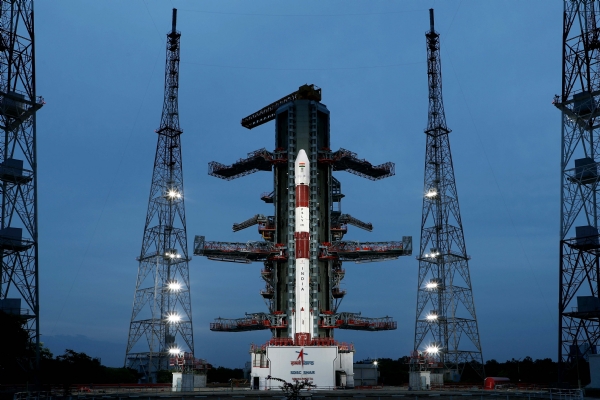ISRO launches 3 satellites for Singapore under its dedicated commercial mission
Soon after launch, the PSLV successfully injected all three satellites into precise orbits. This is the 55th mission of PSLV and the 15th mission using the PSLV-Core Alone variant. It is the 16th PSLV launch from the second launch pad.
Total Views |
Sriharikota, July 01: Under the second dedicated commercial mission of its arm NewSpace India Limited(NSIL), the Indian Space Research Orgnisation, launched three satellites for Singapore, from its second Satish Dhawan Space Centre in Andhra Pradesh’s Sriharikota.

ISRO launched all three satellites on its third generation launch vehicle, PSLV from the spaceport, Sriharikota at 6.02 PM. The spacecraft carries a DS-EO satellite, NeuSAR, and Scoob-1 of Nanyang Technological University (NTU). The launch vehicle flew in the core-alone configuration where no strap-on motors are used other than the four main engine stages.
Soon after launch, the PSLV successfully injected all three satellites into precise orbits. This is the 55th mission of PSLV and the 15th mission using the PSLV-Core Alone variant. It is the 16th PSLV launch from the second launch pad.
The DS-EO satellite carried an Electro-Optic, multi-spectral payload with 0.5m resolution imaging capability. Meanwhile, the SCOOB-I is the first satellite in the student satellite series (S3-1) for giving hands-on training for the university’s satellite research center. The 155 kg NeuSAR satellite is its first small commercial satellite capable of providing images during the day or at night under all weather conditions.
In addition to the international payloads, the rocket also carried six experiments in its fourth stage, including two from Indian startups Digantara and Dhruva Space.
The PSLV orbital Experiment Module uses the spent fourth state of the rocket as an in-orbit platform by adding solar panels, a battery, and a navigation control system. usually, after putting the satellite in order, the rocket state decay returns to the atmosphere and burns up. But, due to the new addition of a little power to keep the stage in orbit, they can be utilised for experiments.
After the launch, Prime Minister Narendra Modi praised the ISRO saying PSLV C53 mission has achieved a new milestone. In a tweet, he said, " The PSLV C53 mission has achieved a new milestone by launching two payloads of Indian startups in Space. Congratulations @INSPACeIND and @isro for enabling this venture. Confident that many more Indian companies will reach Space in near future."
Isro chairperson S Somanath said, “After the primary mission, the PSLV 4 stage is now going to ride POEM in-orbit. The stage will be generating power, stabilised with attitude control and also having certain experiments hosted by some of the young startups enabled by IN-SPACe.”

